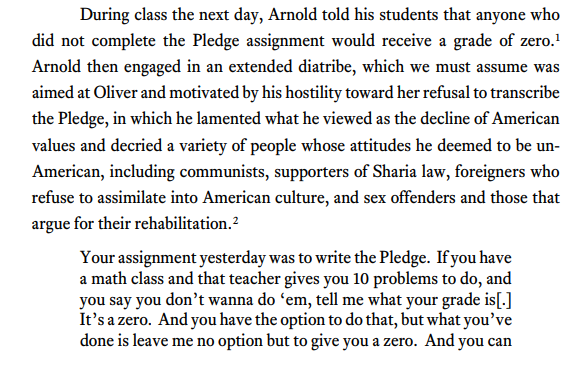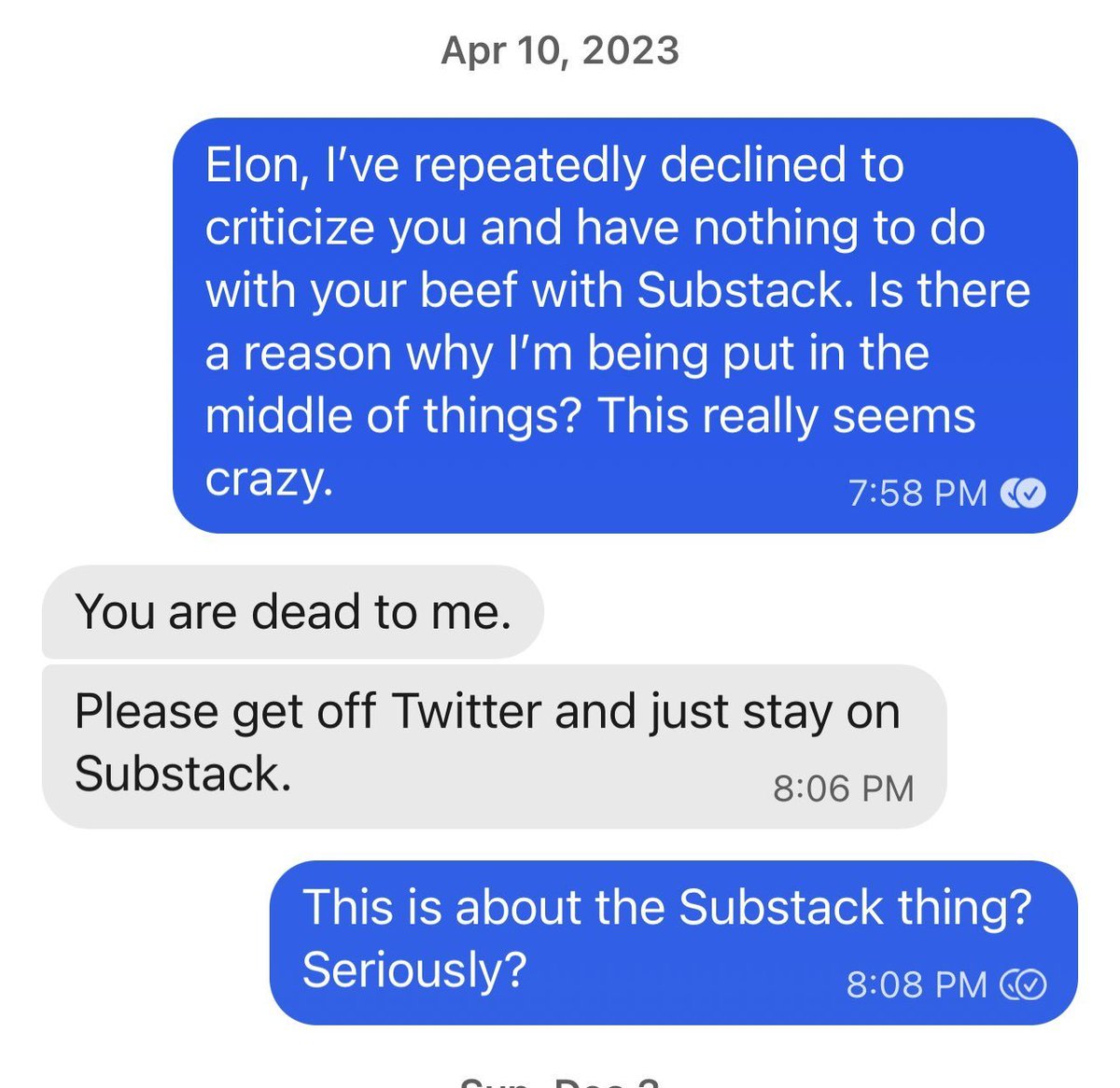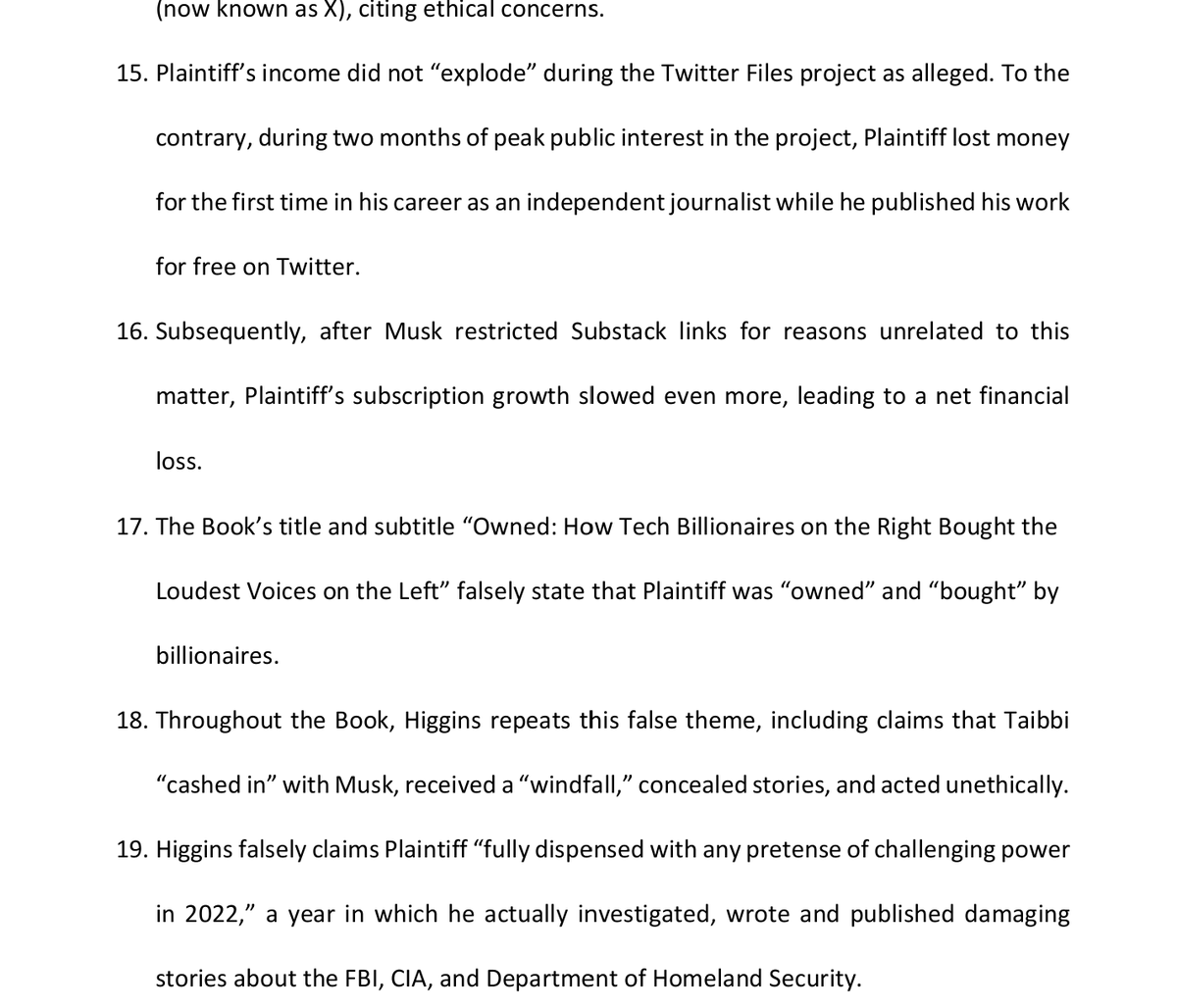In a lawsuit that claims a teacher was so offended by a student's failure to recite the pledge, or write down its words as part of an assignment that he began to mistreat the student, it's a bit rich for a judge to write that "folks are just so easily offended these days"
https://twitter.com/mjs_DC/status/1410232655078170625
Then, the student says he was just sort of consistently a jerk to her, and when she complained, he played a bunch of weird Christian music in class and stared at her.
And he kept doing this stuff even though the administrators were asking him not to.

And he kept doing this stuff even though the administrators were asking him not to.


On appeal, the teacher argued that the student had no constitutional right not to write out the words of the Pledge of Allegiance, and that he had a right to be a jerk to her for making that choice, since it was unprotected. 

When the District Court said that, under Barnette, it was clearly established that the student could choose not to pledge allegiance either orally or in writing, the teacher appealed and asked the appeals court to make different factual findings. No dice. 



And a little ridiculous, the majority opinion notes, for the dissent to fret about people taking offense to Dr. Seuss when this case is squarely about whether schools can force students to swear allegiance. 

The dissent basically disagrees with the trial court's conclusion that there was some evidence the teacher forced students to write out the words of the pledge of allegiance in a set time period as an oath of loyalty. 

Honestly, it's hard for me to think of what educational goal is achieved by forcing the students to write the Pledge of Allegiance. Hard for the dissent, too.
But he drills down hard on the distinction between writing a pledge and saying it.
But he drills down hard on the distinction between writing a pledge and saying it.

This "cute" aside about the Day of the Dead not being a zombie movie probably should have been left in drafts. 

But basically, the argument is because Pledge cases have always been oral, not clearly established for written assignments. Honestly qualified immunity is a terrible enough doctrine that I could see some judges buying this argument. 



Finally, the judge suggests that he has read one sentence of the I Have a Dream Speech, and it is the same as the others.
But presumably, if children had to pledge allegiance to Martin Luther King, he'd see the problem.
But presumably, if children had to pledge allegiance to Martin Luther King, he'd see the problem.

Long story short, I think the judge could make the argument that qualified immunity precludes this suit solely because of the written/oral distinction.
But I think he could have easily done it without auditioning to be the next Judge Ho.
But I think he could have easily done it without auditioning to be the next Judge Ho.
But I think the contrary argument, that this written assignment is effectively a pledge, deals with a finding of fact. What was the teacher's intent? How would a student interpret it?
And there's enough here for a jury to hear this case.
And there's enough here for a jury to hear this case.
• • •
Missing some Tweet in this thread? You can try to
force a refresh










